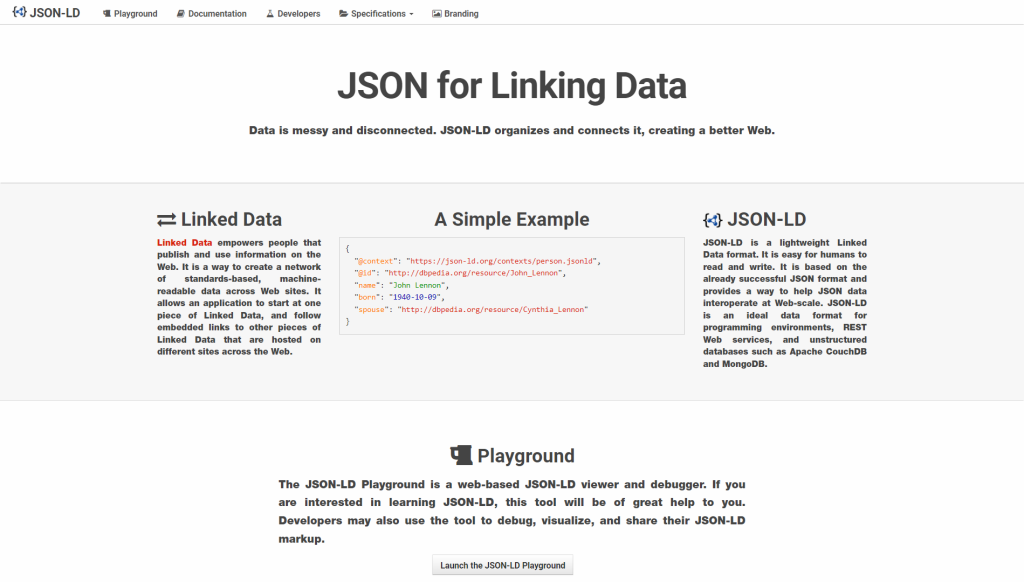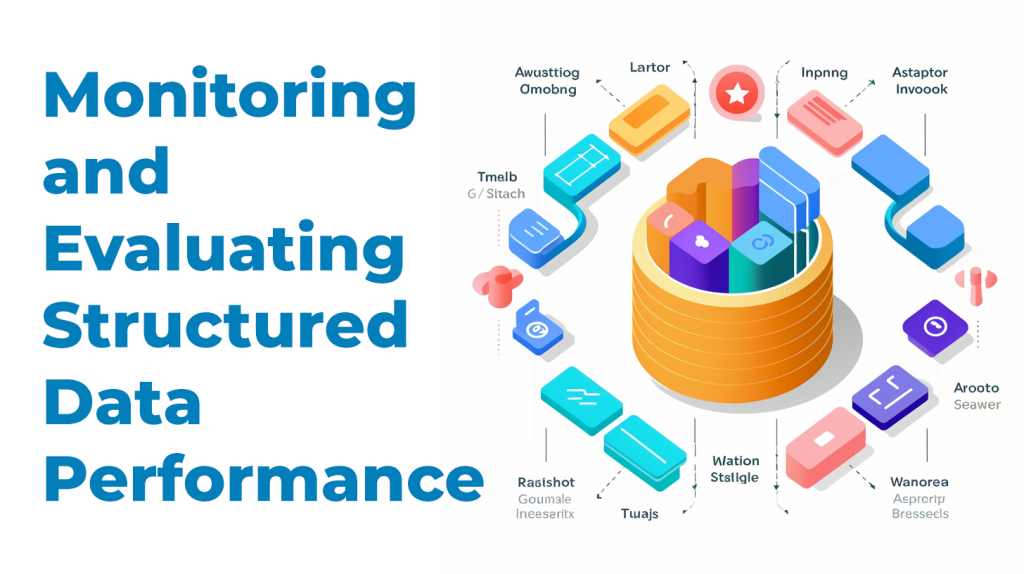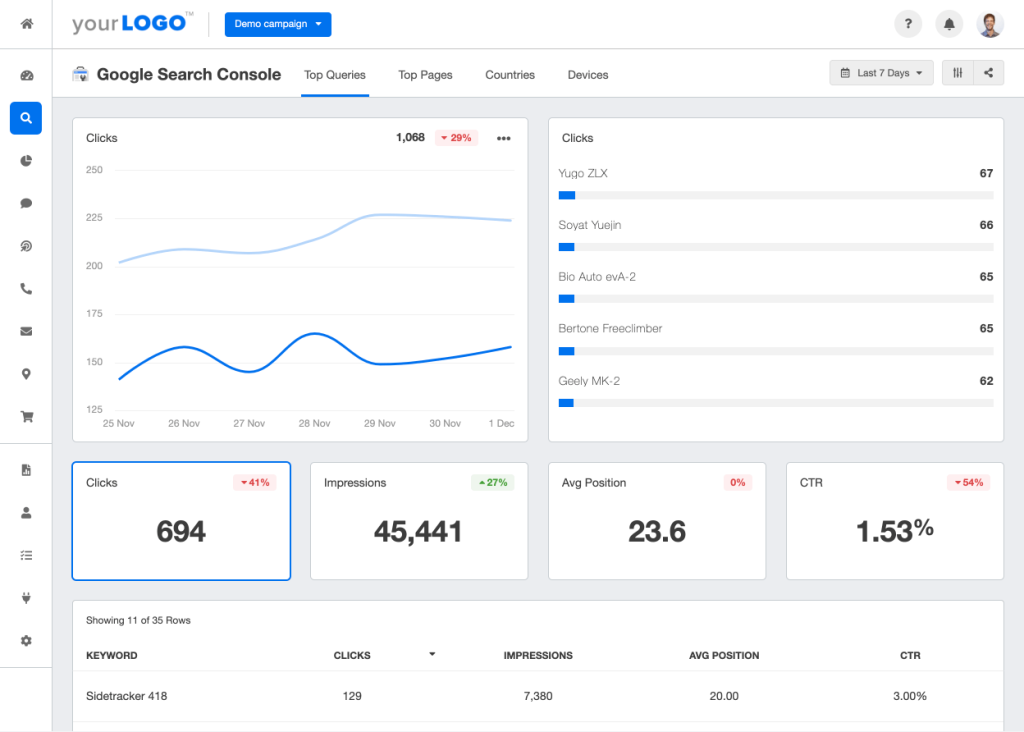
Picture this: you’re a librarian, and instead of neatly organized shelves with books sorted by genre, title, or author, every tome is in a chaotic pile on the floor. This nightmarish scenario is how search engines used to navigate websites before the advent of structured data. So what if you could become your website’s heroic librarian and efficiently arrange your content for maximum SEO impact? Enter structured data.
Let us unlock your website’s true potential with this powerful tool that not only streamlines your content but also makes search engines fall in love with it. Are you ready to jump onto the SEO express train to success? Read on and discover everything you need to know about structured data.
Structured data refers to organized sets of data on a webpage that are tagged with specific groups of text to help search engines understand the context of the content. By providing this additional information to search engines, structured data can enhance SEO by making a webpage more visible to potential customers, increase click-through rates, and trigger enhanced results such as featured snippets, rich snippets, image and video carousels, knowledge boxes, and more. It is important to use standardized vocabulary such as Schema.org and follow best practices for adding structured data to your website in order to maximize its benefits for SEO.
Understanding Structured Data
Structured data is simply a way of adding organization to your website’s content so that search engines can easily understand it. This enables search engines to create more informative and accurate results pages for users searching for particular content. Essentially, structured data provides a roadmap of sorts for search engines to follow when indexing and ranking websites.
To better understand the concept of structured data, imagine walking into a library with unorganized books lying all over the place. It would be difficult, if not impossible, to find what you’re looking for in an efficient manner. Now, imagine that same library, with books neatly categorized by genre, author, and publication date. Finding what you need would be a breeze! The same applies to your website: the more organized and structured your content is, the easier it is for search engines to index and rank it.
In fact, research has shown that implementing structured data can lead to higher click-through rates and enhanced search results. By providing pertinent information in an organized manner through structured data markups such as Schema.org vocabulary, site owners can help ensure their content is displayed accurately and attractively on search results pages.
Of course, when it comes to structured data, there are nuances that must be considered. For instance, certain types of content may require specific markup formats or additional attention from SEO professionals in order to achieve maximum benefit. However, at its core the idea of structured data is quite simple: provide organization and context for your website’s content in order to improve its visibility and relevancy.
Another way of understanding structured data is by examining a relational database management system (RDBMS). In an RDBMS, information is organized into tables with rows representing individual entries/records and columns representing attributes of those entries/records. Similarly, structured data adds attributes such as price, description, availability, ratings, and others to website content.
- Search Engine Journal found that websites implementing structured data markup saw an average increase of 30% in their CTRs.
- According to a 2019 analysis by cognitiveSEO, rich snippets resulted from structured data implementation were present in about 36.6% of search results.
- A survey conducted by Moz in 2018 revealed that over 65% of SEO professionals believe that structured data plays a vital role in enhancing search rankings and visibility.
Ultimately, understanding structured data and its importance to SEO is key to unlocking your website’s full potential. Now let’s explore the role of Schema.org in making this happen.
The Role of Schema.org in SEO
Schema.org is a collaborative community project that provides an extensive library of standardized words and phrases (vocabulary) designed to help webmasters better understand how search engines interpret their content. By using Schema.org vocabulary, site owners can provide metadata that adds context to their content, making it easier for search engines to understand and display on SERPs.
The importance of Schema.org in SEO cannot be overstated. In fact, according to Moz, 36% of Google’s search results pages contain Schema.org markups. Additionally, structured data helps sites become candidates for enhanced results such as featured snippets, rich snippets, image and video carousels, knowledge boxes, and more. All of these features can greatly enhance user experience and increase traffic to a website.
Consider the example of a local business directory site. By implementing LocalBusiness markup through Schema.org vocabulary, site administrators gain greater control over how information about their clients’ businesses appears in search results. This can help attract more high-quality leads by ensuring that potential customers have access to the right information – such as an address, phone number, and hours of operation – from the very beginning.
While there are other vocabularies that exist for structuring data on websites (such as Dublin Core or Microdata), Schema.org has emerged as the leading standard due to its comprehensiveness and flexibility. However, some critics argue that using too much Schema.org markup can actually hurt SEO efforts by creating “spammy” looking pages or confusing search engine algorithms with too many irrelevant details.
On balance though, it is clear that the benefits of using Schema.org markup far outweigh any potential drawbacks. With its extensive vocabulary and backing from major search engines, Schema.org is a powerful tool that can help take your website’s SEO to the next level.
Insights into the importance of structured data and Schema.org as the universal vocabulary standard for it, are essential to fully understand how to improve your website’s SEO. Let’s now look at some specific benefits of structured data in more detail.
Benefits of Structured Data for SEO

Structured data is a crucial tool in SEO, with its benefits extending beyond the realm of site optimization. Here are some compelling reasons why structured data can play a critical role in unlocking your SEO potential.
For one, structured data enables better search engine understanding and interpretation of website content. By organizing web content into distinct categories and standardizing the format that this information takes, webmasters create a clear and consistent mapping process that helps search engines understand page content more accurately.
Sites that incorporate structured data see their organic traffic increase. This makes it easier for users to find the specific information they need, resulting in an improved user experience. By providing rich snippets and other enhanced search results which display more information than traditional meta descriptions, structured data increases click-through rates and enhances the chances of getting featured on the first page of search engine results.
Beyond that, structured data helps prepare websites for the future of the search experience. The number of personalized searches continues to grow every year – and as machine learning advances, so does personalized search’s potential. The use of structured data ensures that users receive accurate, relevant content that reflects their interests and individual needs – reflecting the best practice standard for forward-thinking websites.
However, some critics have opposed structured data implementation due to concerns about the technical proficiency required to execute it properly. Some have criticized its inability to drive conversion rates directly – though the long-term value proposition for accessing higher traffic through elevated visibility cannot be ignored.
Structured data can be likened to laying down clear road signs that point traffic in a specific direction: by indicating the most relevant information on each webpage, websites become clearer navigationally – allowing both human visitors as well as algorithmic crawlers precise and speedy access to important information.
Next, let’s delve deeper into how structured data can drive enhanced search results and click-through rates.
Enhanced search results and click-through rates
Another important benefit of structured data is that it exponentially increases the likelihood of getting featured on the first page of Google – which is the holy grail for any website looking to get discovered by potential consumers. Structured data enables a website to stand out with rich snippets-enhanced search results that contain additional information beyond generic meta descriptions.
Let’s consider an example: Imagine two identical websites, both discussing the same topic. However, only one has implemented structured data schemas to their content. When a user searches for information on the subject in question, the website with structured data schema not only appears higher up in the search engine ranking but displays a host of valuable information such as recipe ingredients or film critic reviews.
Beyond that, research has shown that websites incorporating structured data lead to better click-through rates, as users are more likely to engage with pages that display visually appealing snippets. The use of semantic tags also provides greater context for an article headline – making it more likely to appear under Google’s People Also Ask or Related Searches section based on user query history (which ranks topically relevant results).
Critics argue that this is still an unproven theory – with little actual evidence pointing towards structured data as an SEO panacea. They point out that while structured data can improve visibility, it does not necessarily lead directly to improved conversion-based outcomes such as landing page engagement or tangible revenue growth.
Employing structured data might be seen as putting on your Sunday best before walking out through a busy street filled with potential customers: while you may not necessarily secure direct conclusions from site visitors just yet, you’ve taken all necessary steps to make yourself as visually appealing and helpful within those vital first few seconds of attention-grabbing.
Preparing for personalized search experiences
With the ever-increasing amount of data generated by users, search engines are shifting towards personalized search experiences. This means that search engine results will be tailored to each individual user’s search history, location, and interests. As a website owner or SEO specialist, it is essential to prepare for this shift and adapt your website accordingly.
Structured data has a significant role in preparing for personalized search experiences. By using schema markup, you can provide search engine bots with additional context about your content, making it easier for them to understand how it should be indexed and presented in personalized search results.
An example of this is providing local business information with structured data. When a user searches for “restaurants near me,” search engines can use structured data to present personalized results based on the user’s location and preferred cuisine. This ensures that businesses using structured data have more prominent visibility in the search results, increasing their chances of attracting new customers.
Another example is product searches. A user searching for a specific product may receive personalized recommendations based on their previous purchases or browsing history. Structured data can ensure that the product details are accurate and up-to-date so that users get relevant information about products they’re interested in purchasing.
In addition to this, structured data for entities such as people, places, and things can help search engines understand relationships between different entities. This means websites with structured data will have better chances of appearing in personalized knowledge panels when a user searches for associated entities.
Ultimately, preparing for personalized search experiences means understanding how user intent and context play into SEO strategy. Structured data is an essential component of addressing these factors and improving website ranking in tomorrow’s web environment.
Implementing Structured Data on Your Website

Now that we understand why preparing for personalized search experiences is critical let us explore how to implement structured data on your website effectively.
The first step is to identify which types of schema markup will benefit your content the most. For instance, if you run a local business, mark up your contact information, business hours, and address using the LocalBusiness schema. If you produce creative works like music or movies, use the CreativeWork schema to help search engines understand your content better.
Once you’ve identified which schema is best for your website, it’s time to implement them using Google’s Structured Data Markup Helper or Schema.org’s official documentation. These tools allow you to add tags to the HTML code of specific pages on your website so that search engines can generate rich snippets and knowledge panels based on their indexation.
Structured data also makes it easier for search engine crawlers to understand what your content is about, which helps them extract relevant information for personalized search results. In turn, this improves snippet visibility and click-through rates.
It’s important to note that while structured data implementation can be time-consuming, it’s a worthwhile investment in the long term. As personalization becomes increasingly prevalent in SEO, websites without structured data may struggle to maintain their visibility and relevance.
However, implementing structured data is not a guaranteed solution for improving search engine ranking. It’s only one piece of an effective SEO strategy that needs constant optimization and improvement. Furthermore, unless your website receives substantial traffic from organic search, investing too much time in structured data implementation may not yield significant gains.
JSON-LD syntax and Google’s Structured Data Markup Helper
Now that we have discussed the importance and benefits of structured data for SEO, let’s dive into the implementation process. There are a few different ways you can add structured data to your website, but we recommend using JSON-LD syntax and Google’s Structured Data Markup Helper.

Let’s say you have an e-commerce website selling various products. You want to implement structured data to improve your search results and potentially get featured in rich snippets. Using the Structured Data Markup Helper, you can easily mark up your product listings with important information like product name, price, brand, and availability.
Some may argue that implementing structured data is time-consuming and may not produce immediate results. However, it’s important to remember that search engines are constantly evolving and prioritizing structured data more and more. By taking the time to implement structured data now, you are setting yourself up for success in the future.
Think of structured data as a roadmap for search engines. When they crawl your website, they want to quickly understand the content and context of each page. If you provide them with a clear and organized structure through structured data markup, they will be able to navigate your site more efficiently and potentially reward you with better search rankings.
Implementing structured data using JSON-LD syntax has several advantages. First, it’s highly recommended by Google itself. They even provide a free tool, Google’s Structured Data Markup Helper, which makes it easy for non-technical users to add structured data to their site. Additionally, JSON-LD syntax allows you to keep the markup separate from the HTML code of your page, making it easier to maintain and update.
Now that you’ve implemented structured data on your website, how can you monitor its performance?
Monitoring and Evaluating Structured Data Performance

One way to monitor your structured data performance is by using Google Search Console. Within the console, you can check for any errors or warnings related to your structured data markup. If there are any issues, you’ll be able to see which pages are affected and what needs to be fixed.

Another useful tool is the Rich Results Test from Google. This allows you to test individual pages on your site for eligibility for rich results like featured snippets. The tool also gives you a preview of how your page would look in search results if it was selected for a rich result.
Some may argue that monitoring structured data performance requires too much time and effort. However, keeping an eye on your structured data can help you identify technical issues on your site and ensure that you’re providing accurate and helpful information to search engines.
Think of monitoring structured data as regularly checking the oil in your car. It may seem like an inconvenience, but regular maintenance can prevent bigger problems down the line.
Crafting a smart SEO content strategy requires smarter solutions. Sign up to On-Page.ai and discover how its on-page optimization tools can boost your SEO campaign and objectives.
Answers to Frequently Asked Questions
How can website owners ensure their structured data is implemented correctly?
Website owners can ensure their structured data is implemented correctly by following these steps:
1. Choose the appropriate schema markup for your website content.
Website owners should understand which type of schema markup is relevant to the content on their website. For example, if it’s a recipe website, the “Recipe” schema markup should be used. According to a study by Searchmetrics, pages with schema markup rank four positions higher in SERPs compared to pages without structured data.
2. Use a tool to test the validity of the structured data.
Validation tools such as Google’s Structured Data Testing Tool and Bing’s URL Inspection can help website owners check if their markup is correctly implemented. A lack of structured data implementation can result in lower CTRs.
3. Monitor changes in search engine algorithms and improve as necessary.
Search engines frequently update their algorithms, making it essential for website owners to stay up-to-date with new guidelines and recommendations for structured data implementation. Website owners can maintain visibility on any updates and improve accordingly by monitoring industry updates from companies like Schema.org.
In conclusion, website owners must choose relevant schema markups, validate the structure with tools, and stay current on algorithm updates when it comes to implementing structured data correctly. It is important because it can affect CTRs and SERP rankings significantly.
What types of structured data can be used to enhance SEO?
Structured data is a powerful tool that can greatly enhance the search engine optimization of your website. By adding structured data to your website’s HTML, you can provide search engines with additional information about your content, helping them understand the context and relevance of your pages.
There are several types of structured data that can be used to enhance SEO, including:
1. Schema.org: This is a collaborative effort between Google, Bing, Yahoo!, and Yandex aimed at creating a common vocabulary for structured data markup. Implementing Schema.org markup on your website can improve its visibility in the SERPs, increase CTR, and boost overall SEO performance.
2. Open Graph protocol: This is a set of meta tags used to define various attributes of a web page, such as title, description, and image. Open Graph markup allows social media platforms like Facebook and Twitter to display rich snippets when a link to your page is shared.
3. JSON-LD: This is a lightweight format for structured data markup that can be easily integrated into any web page. It has gained popularity in recent years due to its simplicity and ease of implementation.
In conclusion, if you want to unlock your SEO potential, it’s essential to incorporate structured data into your website’s HTML code. By doing so, you’ll provide search engines with contextual information about your content while also improving user engagement and satisfaction.
How does structured data impact search engine rankings?
Structured data plays a crucial role in search engine rankings because it helps search engines better understand the content on your website. By using structured data, website owners can provide additional context to their content, such as information about products, events, and reviews.
According to a study by Semrush, websites with structured data have an average of 36.6% more traffic coming from organic search than those without. In addition, Google has stated that implementing structured data won’t necessarily boost your rankings directly, but it can help improve how rich results are displayed in SERPs.
Another benefit of using structured data is that it can help with voice search optimization. As more consumers use voice assistant devices like Amazon Alexa and Google Home to search for information online, having structured data in place can make it easier for these devices to deliver relevant information to users.
In conclusion, incorporating structured data into your website’s content strategy has the potential to significantly impact your search engine rankings and drive more organic traffic to your site. Don’t overlook this powerful tool when optimizing your SEO efforts.
Can structured data also improve the user experience on a website?
Absolutely! Structured data can significantly improve the user experience on a website. Including structured data allows search engines to better understand the content on a website, which can help them provide more relevant and useful search results for users. This means that users are more likely to find what they’re looking for quickly and easily, enhancing their overall experience.
In fact, a study by Searchmetrics found that websites using structured data tended to rank higher in search results, with an average ranking position of 4.36 compared to 8.52 for sites without structured data.
Another way structured data can improve the user experience is through the use of rich snippets. Rich snippets are enhanced search results that feature additional information about a website’s content, such as ratings, reviews, and event details. According to Moz, pages with rich snippets receive 35% more clicks than those without.
Overall, incorporating structured data into your website not only helps with SEO but can also lead to a better user experience. By providing more relevant and informative search results, users are more likely to find what they need quickly and easily.
Are there any potential drawbacks to using structured data for SEO?
Yes, there are potential drawbacks to using structured data for SEO. While implementing structured data can certainly enhance your search engine visibility and click-through rates, it does require time and effort to properly implement and maintain. This means that if you lack the resources or knowledge to use structured data effectively, it may not be worth the investment.
Furthermore, Google has stated that structured data is not a ranking factor in its algorithms. While it can certainly improve your search appearance and make it easier for search engines to crawl and understand your content, structured data alone will not guarantee higher rankings.
In fact, over-reliance on structured data could potentially hurt your rankings if it’s perceived as spammy or manipulative by search engines. Google’s algorithms are constantly evolving to detect and penalize websites that try to game the system with manipulative practices like keyword stuffing or link buying. Overusing structured data could trigger similar penalties.
While structured data can certainly have benefits for SEO, it’s important to approach it strategically and with caution. Make sure you have the resources, knowledge, and tools like On-Page.ai, which are necessary to implement it effectively, and avoid relying too heavily on any one tactic for improving your rankings.




